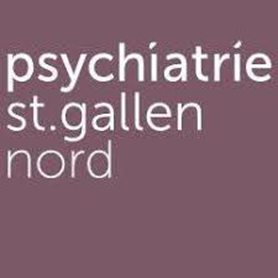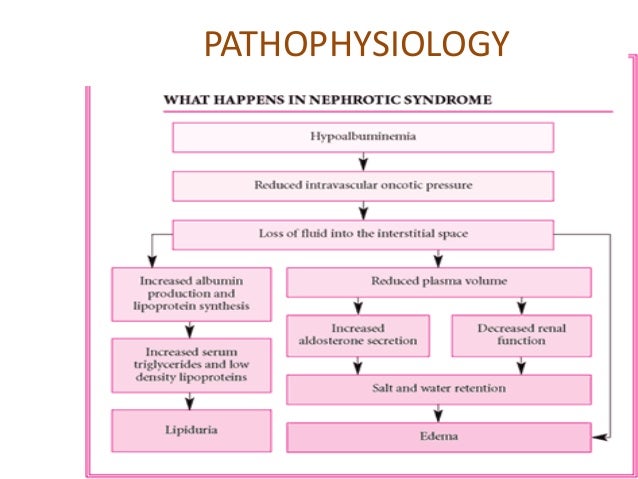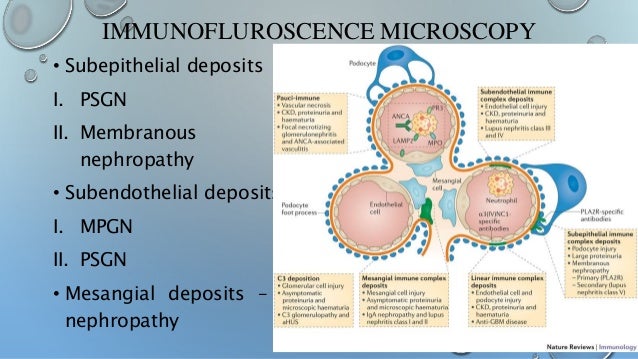
Humoral (t helper cell) immune response results in immunoglobulin deposition and complement activation in the glomeruli. Looking for online definition of psgn or what psgn stands for? .4 and 1 (impetigo) but also after streptococcal pharyngitis, for which it is also known as postinfectious glomerulonephritis (pign) or poststreptococcal glomerulonephritis (psgn).4. • there is no kdigo guideline for treating acute psgn because most patients recover spontaneously and need only supportive care.
This can lead to high blood pressure and. Psgn is a rare complication from a prior group a strep infection. Psgn is an inflammatory disease of the kidneys that is usually associated with childhood pyoderma and is characterized by localized oedema and haematuria 304. Poststreptococcal glomerulonephritis (psgn) results from a bacterial infection that causes rapid deterioration of the kidney function due to an inflammatory response following streptococcal infection. Psgn is a kidney disease that can develop after infections caused by bacteria called group a streptococcus (group a strep). Thus, psgn contributes to the very serious burden of chronic kidney disease in this community. • there is no kdigo guideline for treating acute psgn because most patients recover spontaneously and need only supportive care.

Psgn is an inflammatory disease of the kidneys that is usually associated with childhood pyoderma and is characterized by localized oedema and haematuria 304.
Psgn is reported from all over the world and the rates are higher in children than in adults. The immunologic damage that occurs with psgn. This can lead to high blood pressure and. Psgn's where somebody develops inflammation and nephritic syndrome after an infection by certain. List of 7 best psgn meaning forms based on popularity. It can prevent your child's kidneys from getting rid of waste and extra fluid. Looking for online definition of psgn or what psgn stands for? Acute poststreptococcal glomerulonephritis (psgn) is the archetype of acute gn. What is poststreptococcal glomerulonephritis (psgn)? Poststreptococcal glomerulonephritis or psgn is where the kidneys' glomeruli, which is the location where small molecules are first filtered out of blood and into the urine, become inflamed after an.
Poststreptococcal glomerulonephritis (psgn) results from a bacterial infection that causes rapid deterioration of the kidney function due to an inflammatory response following streptococcal infection. poststreptococcal glomerulonephritis (psgn) is the most common cause of nephritic syndrome in children. This can lead to high blood pressure and. What does psgn abbreviation stand for? Poststreptococcal glomerulonephritis (psgn) is a kidney disease that develops 10 to 14 days after a skin or throat infection. Acute nephritic syndrome is the most serious and potentially devastating form of various renal syndromes. Poststreptococcal glomerulonephritis or psgn is where the kidneys' glomeruli, which is the location where small molecules are first filtered out of blood and into the urine, become inflamed after an. Poststreptococcal (or postinfectious) glomerulonephritis (psgn) refers to acute glomerular inflammation that results from a preceding infection with nephritogenic strains of streptococci. Psgn is a rare complication from a prior group a strep infection.

Psgn is a rare complication from a prior group a strep infection.
Acute poststreptococcal glomerulonephritis (psgn) is the archetype of acute gn. List of 7 best psgn meaning forms based on popularity. Acute glomerulonephritis is a disease characterized by the sudden appearance of edema, hematuria, proteinuria, and hypertension. Psgn is reported from all over the world and the rates are higher in children than in adults. Rigorous strategies to prevent scabies and group a streptococcal infections will reduce this burden. What does psgn abbreviation stand for? Psgn's where somebody develops inflammation and nephritic syndrome after an infection by certain. It can prevent your child's kidneys from getting rid of waste and extra fluid. Poststreptococcal glomerulonephritis (psgn) results from a bacterial infection that causes rapid deterioration of the kidney function due to an inflammatory response following streptococcal infection. Psgn is a kidney disease that can develop after infections caused by bacteria called group a streptococcus (group a strep). Thus, psgn contributes to the very serious burden of chronic kidney disease in this community. Acute nephritic syndrome is the most serious and potentially devastating form of various renal syndromes. Humoral (t helper cell) immune response results in immunoglobulin deposition and complement activation in the glomeruli. It is a representative disease of acute nephritic syndrome in which.
What is poststreptococcal glomerulonephritis (psgn)? The immunologic damage that occurs with psgn. Changing epidemiology of acute psgn. .4 and 1 (impetigo) but also after streptococcal pharyngitis, for which it is also known as postinfectious glomerulonephritis (pign) or poststreptococcal glomerulonephritis (psgn).4.

Poststreptococcal glomerulonephritis (psgn) results from a bacterial infection that causes rapid deterioration of the kidney function due to an inflammatory response following streptococcal infection.
It can prevent your child's kidneys from getting rid of waste and extra fluid. The incidence of psgn in children was 24.3 cases per 100,000 people whereas in people older than 15. Acute glomerulonephritis is a disease characterized by the sudden appearance of edema, hematuria, proteinuria, and hypertension. Thus, psgn contributes to the very serious burden of chronic kidney disease in this community. Rigorous strategies to prevent scabies and group a streptococcal infections will reduce this burden. Acute nephritic syndrome is the most serious and potentially devastating form of various renal syndromes. poststreptococcal glomerulonephritis (psgn) is the most common cause of nephritic syndrome in children. Changing epidemiology of acute psgn. The immunologic damage that occurs with psgn. Looking for online definition of psgn or what psgn stands for? Nevertheless, psgn remains a common disease in many rural and aboriginal communities with low socioeconomic status. Acute poststreptococcal glomerulonephritis (psgn) is the archetype of acute gn. Poststreptococcal glomerulonephritis or psgn is where the kidneys' glomeruli, which is the location where small molecules are first filtered out of blood and into the urine, become inflamed after an. Psgn is a rare complication from a prior group a strep infection.
The incidence of psgn in children was 243 cases per 100,000 people whereas in people older than 15 psg. Poststreptococcal glomerulonephritis (psgn) is a kidney disease that develops 10 to 14 days after a skin or throat infection.

poststreptococcal glomerulonephritis (psgn) is the most common cause of nephritic syndrome in children.

Acute glomerulonephritis is a disease characterized by the sudden appearance of edema, hematuria, proteinuria, and hypertension.

Acute nephritic syndrome is the most serious and potentially devastating form of various renal syndromes.

The specific m protein (emm types) serotypes of strep pyogenes activate.

Thus, psgn contributes to the very serious burden of chronic kidney disease in this community.

Rigorous strategies to prevent scabies and group a streptococcal infections will reduce this burden.

Psgn is a kidney disease that can develop after infections caused by bacteria called group a streptococcus (group a strep).

List of 7 best psgn meaning forms based on popularity.

Acute nephritic syndrome is the most serious and potentially devastating form of various renal syndromes.

Rigorous strategies to prevent scabies and group a streptococcal infections will reduce this burden.

poststreptococcal glomerulonephritis (psgn) is the most common cause of nephritic syndrome in children.

Thus, psgn contributes to the very serious burden of chronic kidney disease in this community.

• there is no kdigo guideline for treating acute psgn because most patients recover spontaneously and need only supportive care.

Psgn can bring on sudden symptoms of swelling (edema), reduced urine output (oliguria), and psgn is most common in children between the ages of 3 and 7, although it can strike at any age, and.

The main symptoms are blood in your child's wee and swollen ankles or puffy.

Psgn is a kidney disease that can develop after infections caused by bacteria called group a streptococcus (group a strep).

Acute nephritic syndrome is the most serious and potentially devastating form of various renal syndromes.

Acute nephritic syndrome is the most serious and potentially devastating form of various renal syndromes.

.4 and 1 (impetigo) but also after streptococcal pharyngitis, for which it is also known as postinfectious glomerulonephritis (pign) or poststreptococcal glomerulonephritis (psgn).4.

Humoral (t helper cell) immune response results in immunoglobulin deposition and complement activation in the glomeruli.

The specific m protein (emm types) serotypes of strep pyogenes activate.

The main symptoms are blood in your child's wee and swollen ankles or puffy.
+(800x602).jpg)
Acute nephritic syndrome is the most serious and potentially devastating form of various renal syndromes.

Humoral (t helper cell) immune response results in immunoglobulin deposition and complement activation in the glomeruli.

Poststreptococcal glomerulonephritis (psgn) is a kidney disease that develops 10 to 14 days after a skin or throat infection.

Thus, psgn contributes to the very serious burden of chronic kidney disease in this community.

poststreptococcal glomerulonephritis (psgn) is the most common cause of nephritic syndrome in children.

Acute poststreptococcal glomerulonephritis (psgn) is type iii hypersensitivity reaction that occurs in the glomeruli of the kidney a couple of weeks after a group a streptococcal infection of the pharynx/skin.

Nevertheless, psgn remains a common disease in many rural and aboriginal communities with low socioeconomic status.

Thus, psgn contributes to the very serious burden of chronic kidney disease in this community.

Psgn is an inflammatory disease of the kidneys that is usually associated with childhood pyoderma and is characterized by localized oedema and haematuria 304.

.4 and 1 (impetigo) but also after streptococcal pharyngitis, for which it is also known as postinfectious glomerulonephritis (pign) or poststreptococcal glomerulonephritis (psgn).4.

Psgn can bring on sudden symptoms of swelling (edema), reduced urine output (oliguria), and psgn is most common in children between the ages of 3 and 7, although it can strike at any age, and.

It can prevent your child's kidneys from getting rid of waste and extra fluid.

Humoral (t helper cell) immune response results in immunoglobulin deposition and complement activation in the glomeruli.

Psgn is an inflammatory disease of the kidneys that is usually associated with childhood pyoderma and is characterized by localized oedema and haematuria 304.

Rigorous strategies to prevent scabies and group a streptococcal infections will reduce this burden.